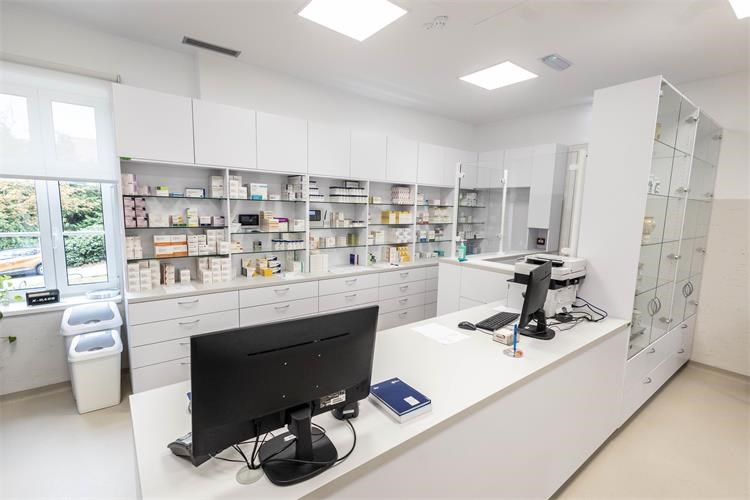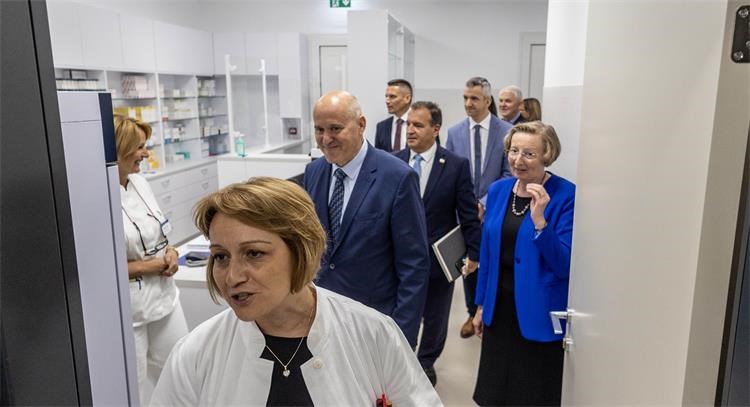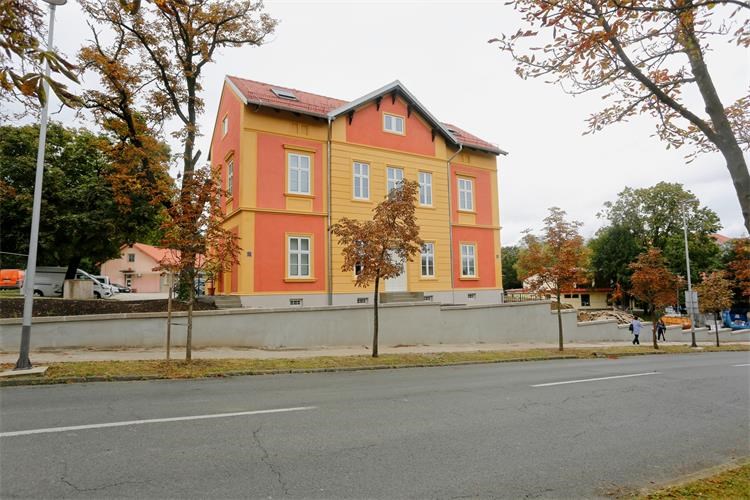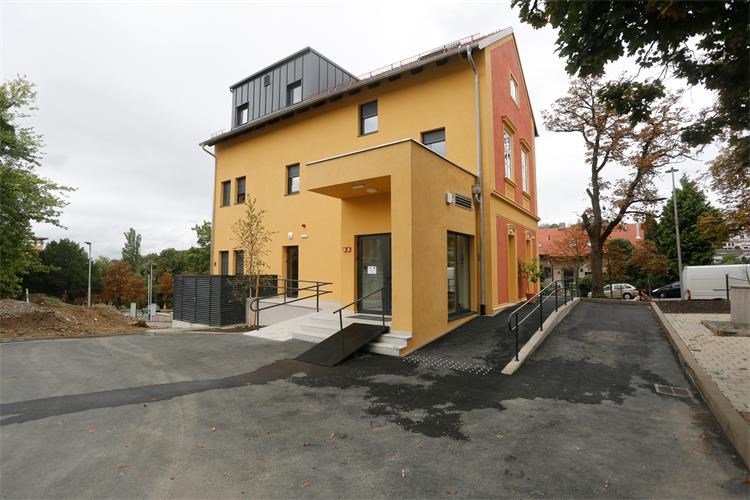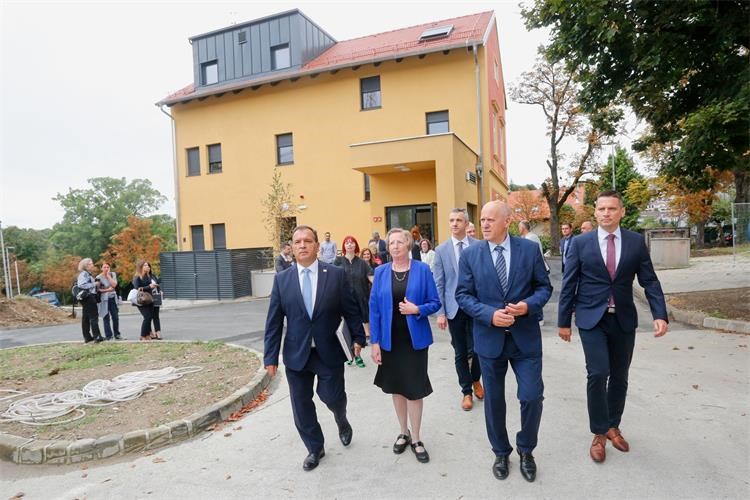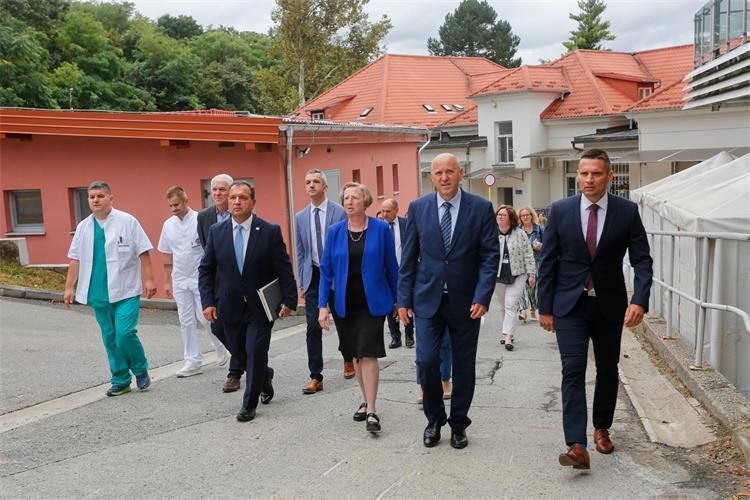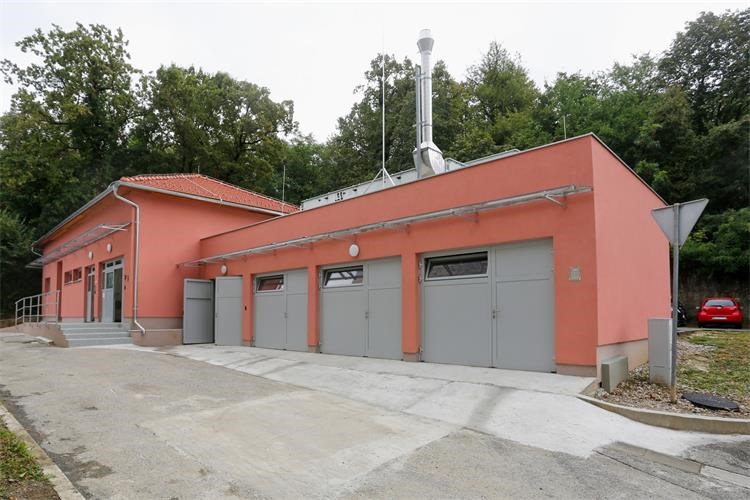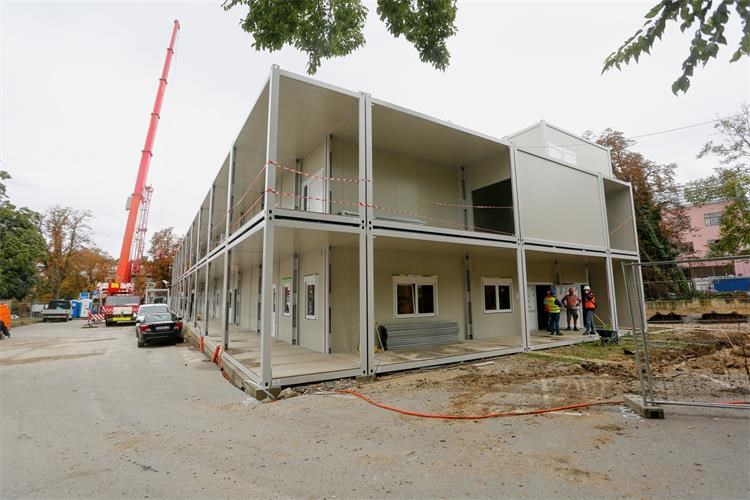- Published: 30.08.2023.
Renovated premises of Zagreb's Infectious Diseases Hospital opened
(Hina) - New premises were opened in Zagreb's Infectious Diseases Hospital on Wednesday - a pharmacy and an autopsy room that meet the highest European standard. Construction Minister Branko Bačić said that in the area of the Zagreb and Petrinja earthquakes, dozens of health facilities are being renovated with a total of €700 million.
Health Minister Vili Beroš said on this occasion that this is part of the historic renovation of the Croatian health system."This hospital has not been invested in for a hundred years," Minister Beroš said, adding that the Dr. Fran Mihaljević Infectious Diseases Hospital is part of the ongoing historic renovation of the Croatian health system.
"This hospital is celebrating 130 years of existence, and ahead of the anniversary, one of the most modern autopsy rooms in Central Europe was opened. The renovation is worth €10.1 million, and the renovation of the health infrastructure in Zagreb is worth over €150 million," said Beroš.
The director of the hospital, Alemka Markotić, pointed out that thanks to EU and government funds, after 100 years of non-investment, the hospital got new extremely important spaces for its functioning.
The new hospital pharmacy was said to be the only one in Croatia that supplies HIV patients with medicines and special therapy for hepatitis patients.
The autopsy hall, damaged in the earthquake, was restored in such a way that it is now possible to perform autopsies on bodies infected with the most dangerous pathogens, and it has become the leading such place for Central and Eastern Europe. In addition, the capacity of the morgue was quadrupled, the educational space and premises for infectious waste within the hospital were completed.
Bačić: €700 million for renovation of health facilities
Construction Minister Branko Bačić said that in the area of the Zagreb and Petrinja earthquakes, dozens of health facilities are being renovated with a total of €700 million.
Thirty percent of the funds from the EU Solidarity Fund were used to rebuild the health infrastructure. The use of money from that Fund was concluded on 30 June, and 18 hospitals and 56 health institutions were involved, Bačić said.
He recalled that before the end of June, the government decided that the money needed for the restoration of 1,330 projects, after the money from the Solidarity Fund is used, will come either from the state budget or from the National Recovery and Resilience Plan (NPOO).
We have calculated that for the completion of all these projects, we will need one billion euros from the state budget, and 1.2 billion euros from the NPOO, Bačić said.
